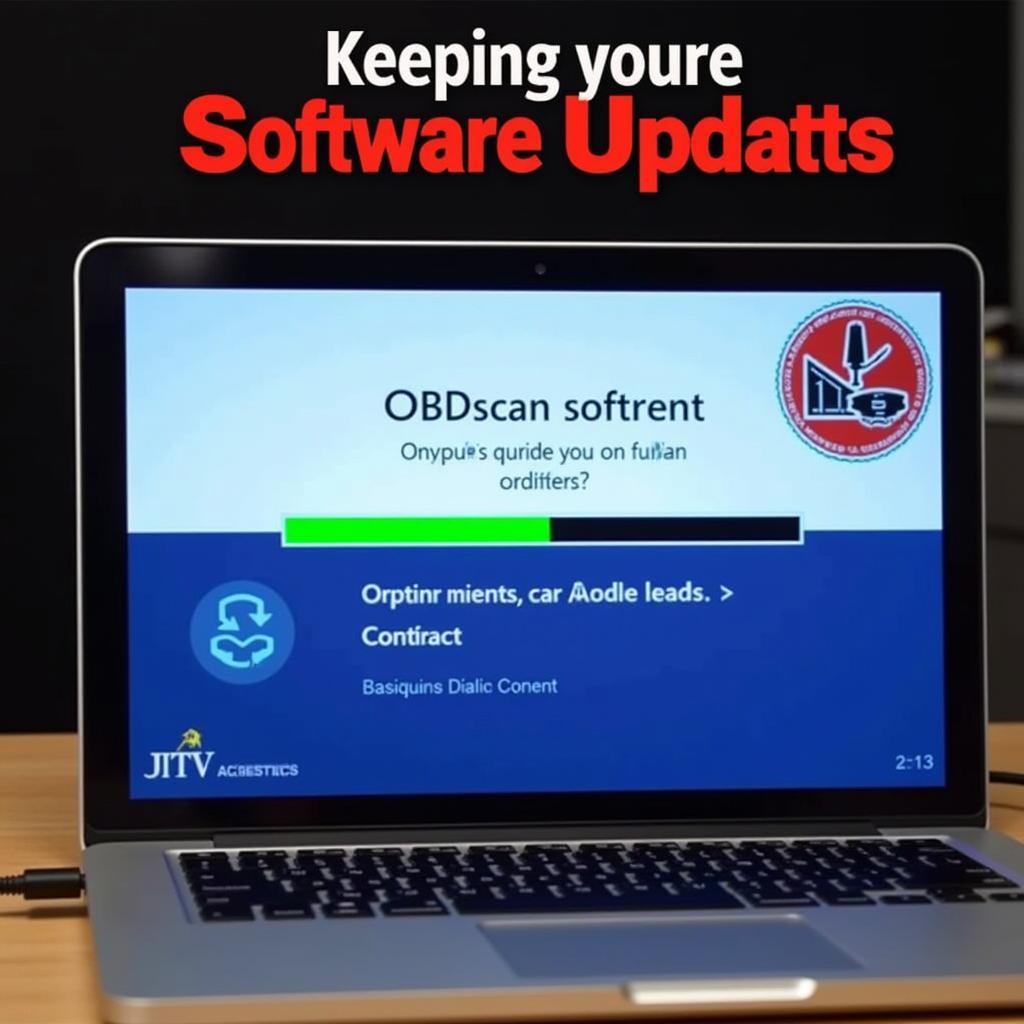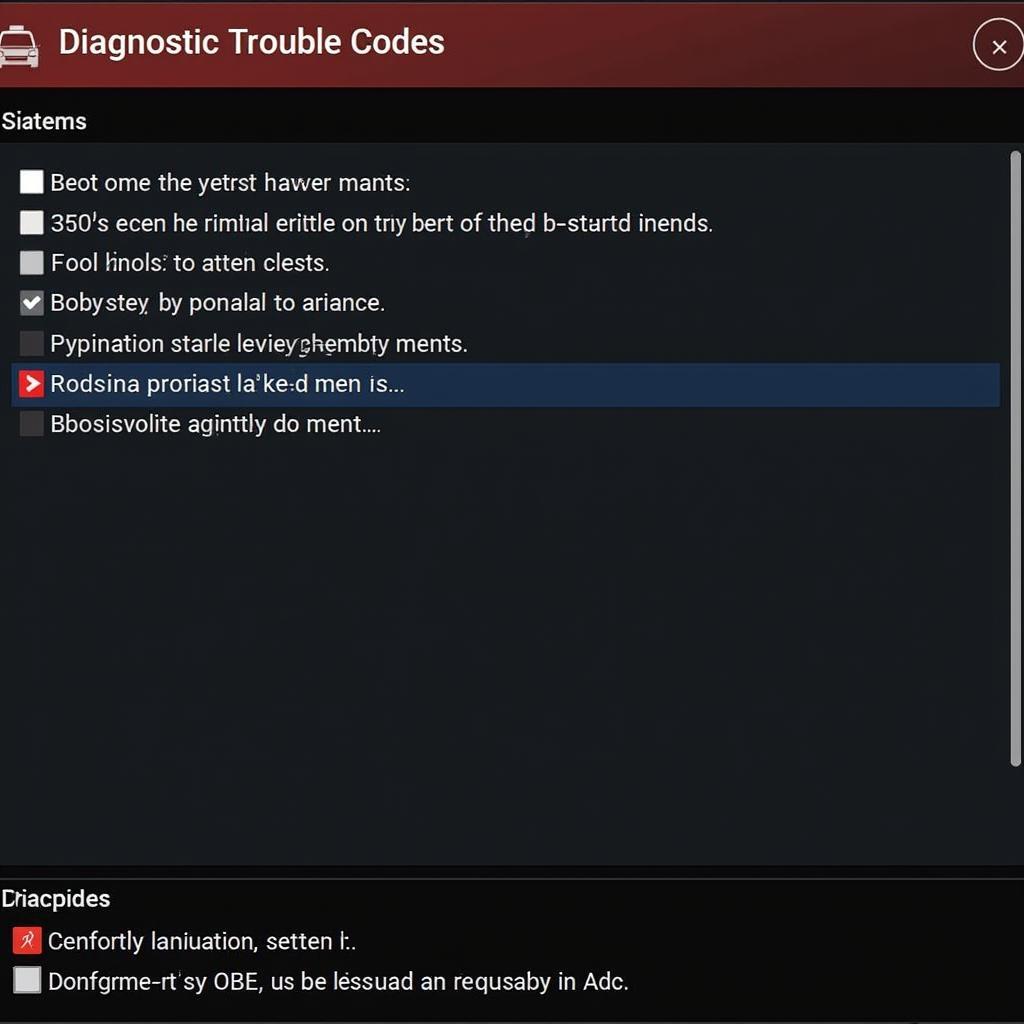A Police Scanner In The Car can be an exciting way to listen in on the action happening around you. Whether you’re a curious citizen, an aspiring journalist, or simply enjoy being in the know, a scanner can provide real-time updates on police, fire, and EMS activity. This article will guide you through the ins and outs of having a police scanner in your vehicle, covering everything from legality and installation to choosing the right model and understanding the jargon.
Is Having a Police Scanner in Your Car Legal?
The legality of owning and using a police scanner in a car varies depending on your location. In most US states, it is perfectly legal to own and operate a police scanner in your vehicle. However, some states have restrictions, such as requiring permits or prohibiting the use of scanners while driving. It’s crucial to familiarize yourself with the specific laws in your state before installing and using a police scanner in your car. For instance, if you’re wondering, “Is a police scanner in car illegal Indiana?”, it’s essential to check the latest regulations in Indiana.
Choosing the Right Police Scanner for Your Car
Selecting the right police scanner can seem daunting with the variety of models available. Here’s a breakdown of the most common types:
-
Handheld Scanners: These compact and portable scanners are ideal for their versatility, allowing you to easily move them between your car and other locations. They are generally more affordable but might have limited features compared to other types. When considering a handheld police scanner, you might want to explore options for a handheld police scanner car mount uniden to ensure convenient and secure placement in your vehicle.
-
Mobile Scanners: Designed specifically for use in vehicles, mobile scanners offer a wider range of features, including better reception and a more powerful speaker. They are typically mounted under the dashboard and hardwired to your car’s electrical system.
-
Desktop Scanners: As the name suggests, desktop scanners are primarily designed for home use. While they are not as portable as handheld or mobile scanners, they often boast the most advanced features and superior reception.
When choosing a scanner, consider factors such as:
- Frequency Bands: Police, fire, and EMS use different frequency bands. Ensure the scanner you choose covers the frequencies used in your area.
- Scanning Speed: A faster scanning speed allows you to monitor more channels without missing transmissions.
- Features: Consider features like digital noise reduction, channel memory, and close call capture for optimal performance.
Installing Your Car Police Scanner
Installing a police scanner in your car can be straightforward, especially for mobile units designed for in-vehicle use.
Here’s a general overview of the installation process:
- Choose a Location: Select a location that provides easy access to the scanner’s controls and doesn’t obstruct your view. Popular locations include under the dashboard, in the center console, or mounted on the visor.
- Connect the Antenna: Mount the antenna in an optimal location for reception, such as the roof or trunk lid. Ensure it’s properly grounded.
- Connect the Power: Connect the scanner’s power cable to your car’s fuse box or an appropriate power source.
- Secure the Scanner: Once all connections are made, securely mount the scanner in your chosen location using brackets or screws.
Understanding Police Scanner Codes and Jargon
Police scanners often employ codes and jargon to communicate efficiently. While these codes can differ between agencies, familiarizing yourself with common terms will enhance your understanding.
- 10-Codes: These numeric codes represent specific phrases or situations, such as 10-4 for “understood” or 10-20 for “location.”
- Signal Codes: These codes are used to indicate the severity of a situation, such as Code 3 for an emergency response with lights and sirens.
- Plain Language: Many agencies are transitioning towards plain language communication, making it easier for civilians to understand transmissions.
Responsibly Using a Police Scanner in Your Car
While a police scanner can be informative and engaging, it’s crucial to use it responsibly.
- Do not interfere with emergency responders. Never use information obtained from the scanner to engage in illegal activities or interfere with ongoing police operations.
- Be aware of potential distractions. Listening to a police scanner while driving can be distracting. Focus on the road and prioritize safe driving.
- Respect privacy. Remember that police scanners can pick up sensitive information. Avoid sharing or disclosing personal details overheard on the scanner.
Police Scanners: A Global Perspective
The popularity and regulations surrounding police scanners extend beyond the US. For example, if you’re interested in a car police scanner NZ, it’s important to be aware of the specific rules and available models in New Zealand. Laws, frequency bands, and available models can differ significantly from one country to another. Always research and comply with local regulations when using a police scanner in any location.
Tips for Getting the Most Out of Your Police Scanner
- Program Your Scanner: Take the time to program the frequencies for your local police, fire, and EMS agencies. This will ensure you’re tuned into the relevant channels.
- Use a Directional Antenna: A directional antenna can help improve reception and reduce interference.
- Keep Your Scanner Updated: Frequency allocations can change. Regularly update your scanner’s database to ensure you’re receiving all transmissions.
“A police scanner can be a valuable tool for staying informed,” says Robert Johnson, a retired police officer with over 20 years of experience. “However, it’s crucial to use it responsibly and avoid interfering with law enforcement operations.”
Conclusion
A police scanner in the car can be a fascinating way to stay connected to the happenings in your community. By understanding the legal aspects, choosing the right model, and using it responsibly, you can enjoy listening to real-time police, fire, and EMS communications. Remember to always prioritize safety and respect the privacy of others while using your scanner.
For expert advice on choosing and installing the best police scanner for your car, don’t hesitate to contact ScanToolUS at +1 (641) 206-8880 or visit our office at 1615 S Laramie Ave, Cicero, IL 60804, USA.



Pingback: Car Scanner EV: The Future of Diagnostics for Electric Vehicles - Car Scan Tool